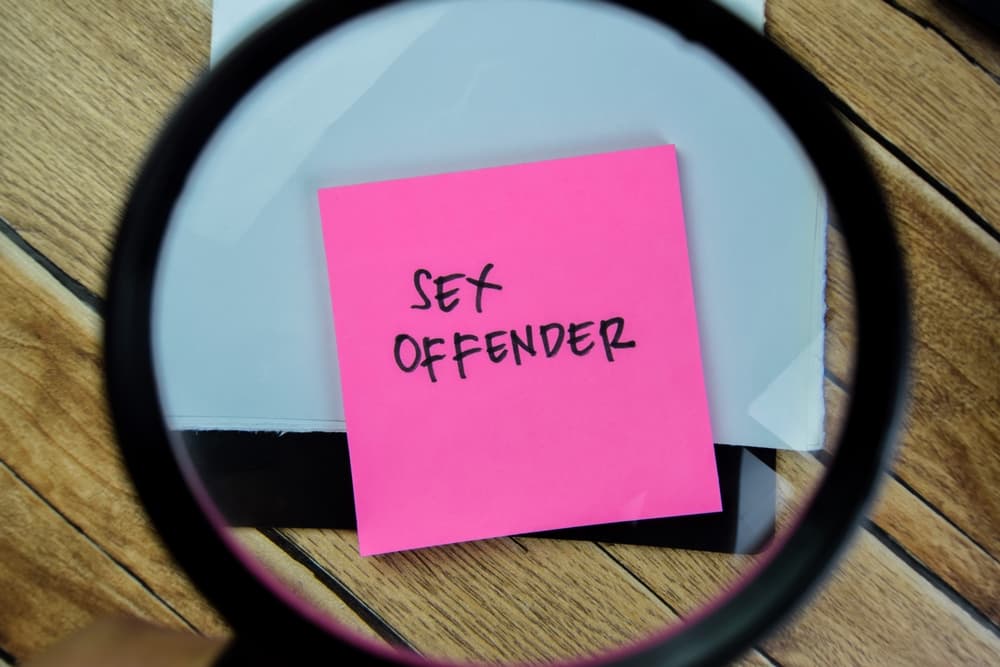Whether you'll need to register as a sex offender hinges on the nature of the charges against you and the outcome of your case. Hiring an experienced Savannah sex crimes attorney can provide insight and potential legal defenses that could help keep your name off the registry.
What Situations May Require Sex Offender Registration

Georgia law outlines specific offenses that trigger an obligation to register as a sex offender. The most common convictions include but are not limited to:
- Sexual Assault Charges involving a minor or an adult under certain conditions.
- Possession or Distribution of Child Pornography, which carries severe penalties regardless of intent or circumstances of acquisition.
- Statutory Rape, particularly if there is a significant age difference or if the court does not find that mitigating factors apply.
- False Imprisonment when the victim is under 14 years old, even if the act had no sexual component.
- Certain Internet-Related Offenses, like inappropriate communication with a minor or attempting to solicit a minor online.
If convicted of one of these offenses, Georgia law generally requires your name to be added to the state registry.
While many misdemeanors, like public indecency or prostitution, typically do not require registration, it's important to verify how specific charges are classified under current laws.
Understanding how your charges fit into these categories is often easier to understand when you retain the counsel of an experienced criminal defense attorney.
What Does Registration Mean For You?
Being added to the registry doesn't just mean routine check-ins with your local sheriff's office. It imposes many restrictions and responsibilities that can heavily regulate your day-to-day life. Key implications of registration include:
- Living Restrictions: Residency is restricted within 1,000 feet of schools, parks, churches, and other areas frequented by minors, though additional local ordinances may apply.
- Employment Limitations: Many professions become off-limits, particularly those requiring proximity to children.
- Prohibitions on Loitering: Registered offenders are barred from lingering in areas where minors gather, such as playgrounds or libraries.
- Public Access to Your Information: Your name, address, and other details are made publicly accessible through Georgia's registry database.
Aside from the legal limitations, the stigma of registration can follow you for years to come, impacting relationships, reputations, and opportunities. Whether any, all, or some of these apply to your situation often depends on the details of your case and the outcome of court proceedings.
Can You Avoid Having To Register As A Sex Offender?
Avoiding registration doesn't come easy. Georgia law enforces strict requirements, and navigating your way around them often requires the guidance of an experienced sex crimes lawyer.
While the First Offender Act offers some individuals a chance to avoid a conviction record, it generally does not apply to sex crimes. That means your legal options for avoiding registration will likely have to hinge on the strength of your defense and the ability to challenge the charges against you.
Having a dedicated lawyer can significantly impact your defense strategy, helping to challenge charges effectively. Here's how:
- Analyzing the Evidence. Your attorney can identify weaknesses in the prosecution's claims, from inconsistencies in witness statements to a lack of physical evidence.
- Negotiating for Charge Reductions. If the facts of your case support it, a lawyer may argue to have your charges reduced to non-registerable offenses, potentially avoiding the registry altogether.
- Challenging Procedural Errors. Evidence obtained improperly or mistakes made during your arrest could make all the difference in your defense.
The goal of all this dedicated legal support? To fight for a favorable outcome that avoids the life-altering consequences of sex offender registration. While no defense strategy guarantees success, having someone committed to protecting your rights gives you the best shot.
How Can An Attorney Help My Case?

Handling cases involving potential sex offender registration isn't something you want to approach casually or alone. Sex crime laws in Georgia are complex, and the stakes couldn't be higher. Here's what legal counsel can help you address to avoid violating registry conditions or avoid ending up on it altogether:
- Guide You Through Complicated Processes. From understanding what "areas where minors congregate" means to advocating for charge reductions, a lawyer can help you address pitfalls you may not see coming.
- Explore Loopholes or Exceptions. Not all cases fit neatly into mandatory registration requirements. An attorney can identify factors unique to your case that might prevent registration.
- Advocate For You Aggressively. Whether negotiating a plea or fighting your case in court, an experienced attorney can help make the difference between a future restricted by registration and one where you can carry on with your life.
When your freedom and future feel uncertain, don't rely on chance or hope that the system will work it out for you. Advocate for yourself by putting your situation in the hands of someone who knows how the system works and how to push back.
The Atlantic Law Firm | Sex Crimes Attorney Ready To Fight For Your Rights
Dealing with potential sex offender registration can feel overwhelming. But the
right support can change the playing field. With years of experience handling cases like yours, Stacey M. Goad understands the high stakes involved. You are not just another case. Your life matters, and so does your future.
If you or a loved one is facing charges that could lead to sex offender registration, don't wait to get answers. Contact a criminal defense lawyer from The Atlantic Law Firm online or at (912) 209-9000 to start fighting back.